Sebastian Tarek at work in his studio
Earlier today, we took a closer look at Sebastian Tarek's debut collection of beautiful, bespoke and handmade men�s shoes. We chatted to the craftsman about his work, the evolution of the label and heard about his experiences at Menswear Day. Here, we continue the discussion and learn more about his trade before offering a serving of studio porn...
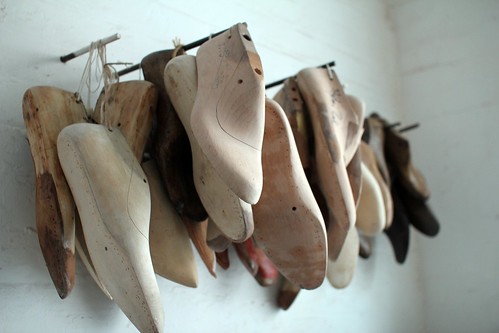
Earlier today, we took a closer look at Sebastian Tarek's debut collection of beautiful, bespoke and handmade men�s shoes. We chatted to the craftsman about his work, the evolution of the label and heard about his experiences at Menswear Day. Here, we continue the discussion and learn more about his trade before offering a serving of studio porn...
----------
SS: I'm instantly struck by the sheer number of rasps, files and hammers. Is it difficult sourcing your tools?
Sebastien Tarek: Really hard. Most of the tools on the bench is long secondhand. The rasps are all new. However, there is a particular rasp which I use more than any other which I went to reorder recently only to find that the the company no longer makes it. This happens all the time. It is my excuse why I go to Spitalfields every Thursday, the hope that I might find old tools, more often than not I find an old jacket but I always keep my eye out for tools. Some of the tools, you'll have for life. When it comes to my pattern hammer I just hope that I never have to replace it. There's a story about my heel hammer actually. My Father came over from Oz and had a few appointments in Paris, one of which was with the Master Bootmaker at Hermes. My Father told him about me and my need for tools and as he was soon to retire he amazingly gave him his heel hammer which clearly he had used for well over fifty years. From one old craftsmen to a newer one. These tools are built to last.
SS: How has the industry changed over the years?
Sebastian Tarek: There has been a recent backlash against the over saturation of the high street and I hope that it can help to sustain these dying crafts. Bespoke shoemaking is a dying craft. The average age in this industry is stratospheric, around sixty sixty years old. In the 1970s, the West End Master Boot makers Association had something like twenty six menders, now there are only four. Hopefully there can be a turnaround. In this time frame, it has gone from being expensive to being truly luxurious in price which makes it difficult to contemporise the market. I lament the fact that very few of my friends own a pair of my shoes but I cannot make them any cheaper. In terms of materials, equipment and just the labour involved.
SS: I appreciate that it varies greatly depending upon the style and finish but how long does it take on average?
Sebastian Tarek: Generally speaking a full week of man hours and that is devoted man hours. There is of course fittings, drying times, if the pair has hand stitched uppers then that takes a full day in itself. I quote three to six months. It is a laborious process but it is such an experiential retail opportunity, the fact that you get a beautiful pair of shoes that you know you've had a direct involvement with and will fit you in a way that you've not experienced before. You have a relationship with this item before you even have them on your feet.
----------It was an absolute pleasure spending an hour with Sebastian Tarek. In the true spirit of his trade, he worked away on his latest design, trimming leather and wielding his pattern hammer as we talked. As he did so, I duly snapped away and explored his studio...

Sebastian Tarek at work and the finished product.


 6:54 AM
6:54 AM
 about style
about style
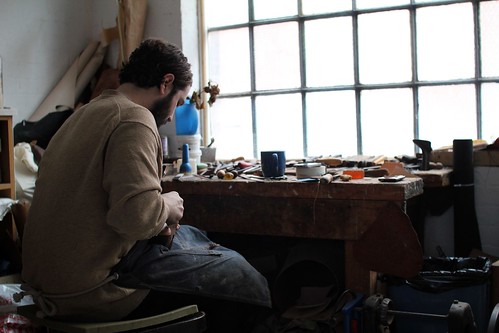
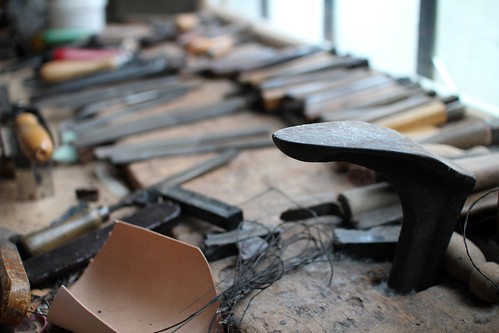
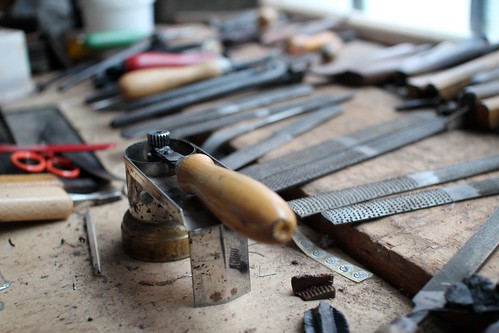
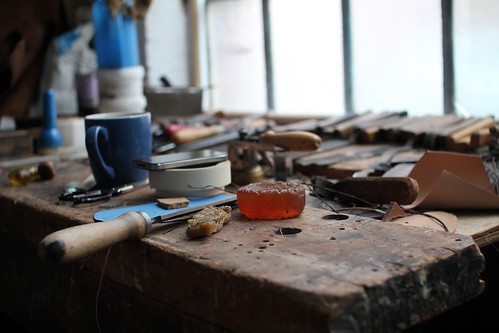
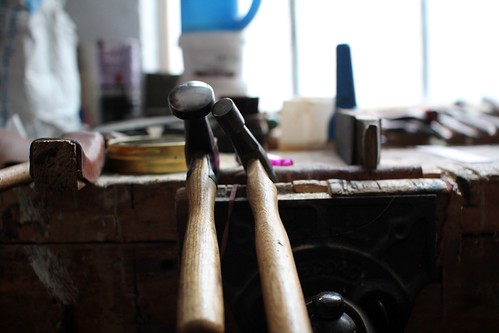
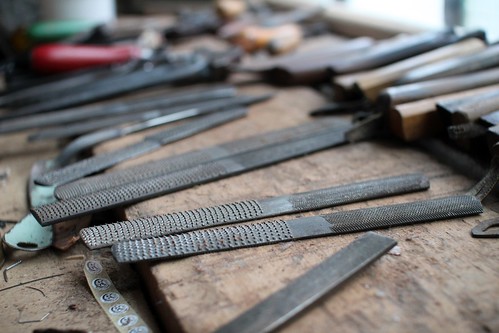
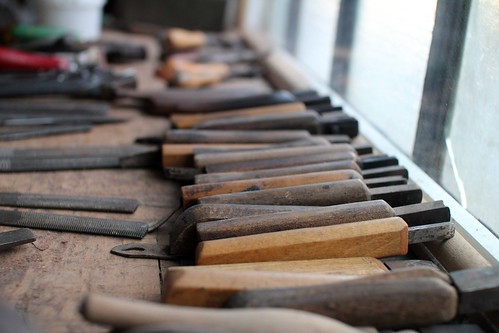

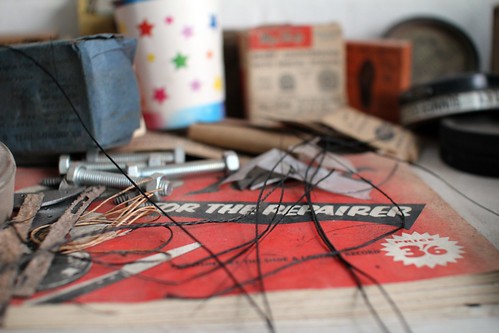
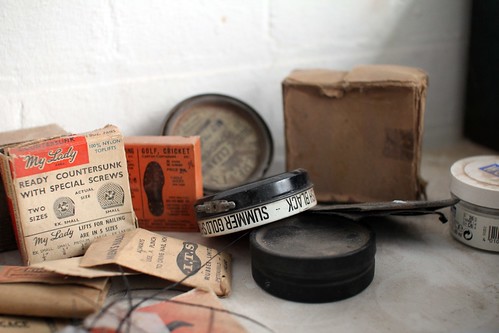

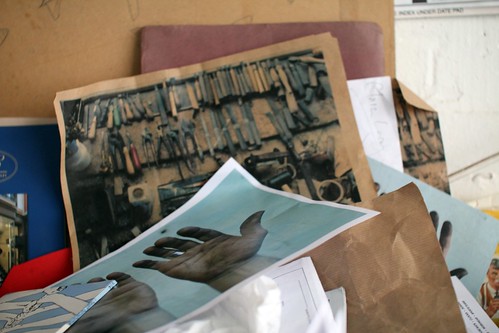
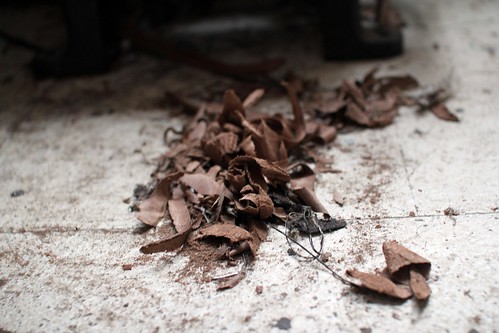
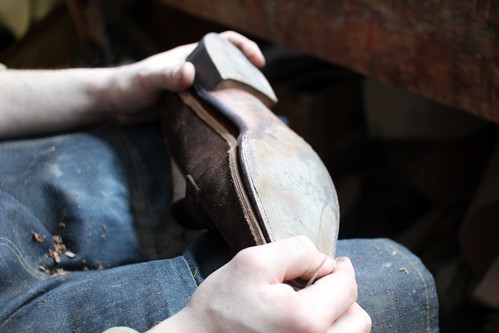
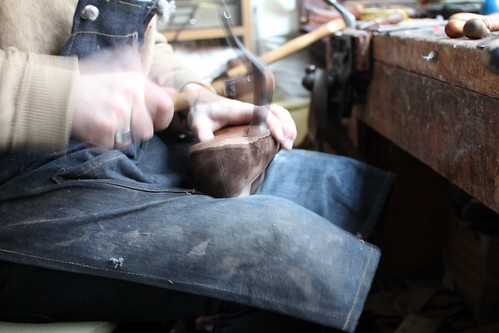
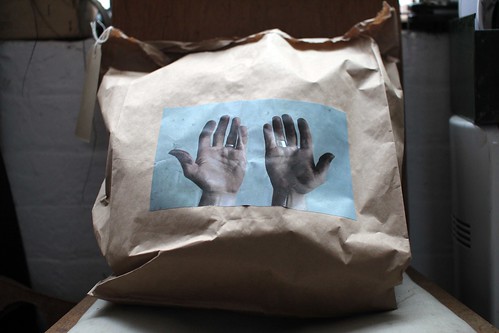
0 comments:
Post a Comment